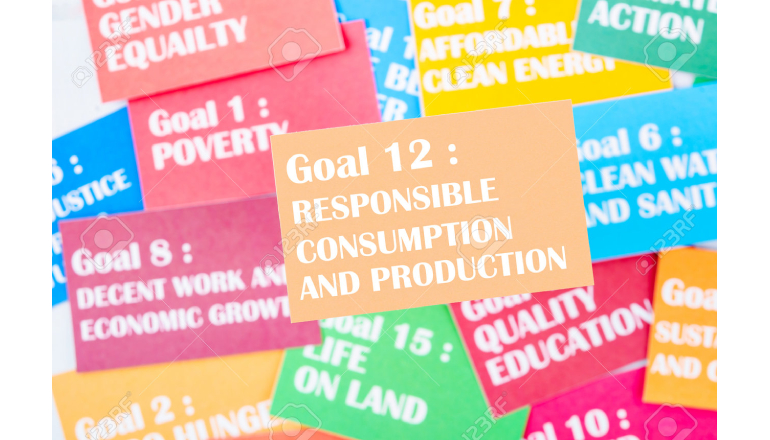OECD countries must adopt Sustainable Consumption Goals (SCGs) to meet sustainable development goals (SDGs), a new report from Observer Research Foundation (ORF) says.
SDGs are not enough for global sustainability. OECD countries need to adopt Sustainable Consumption Goals (SCGs), wrote Vikrom Mathur, Senior Fellow, ORF.
The stocktaking, monitoring, and evaluation exercises executed by forums such as the recent SDG Summit, which put a large share of responsibility on developing nations, are deeply flawed, he observed.
Despite the rhetoric of universality, the outlined SDGs put the onus on developing countries to improve their environment and social indicators and gloss over the responsibility of wealthy nations which historically consumed a large share of global resources. Even to this day, the per capita consumption of a handful of wealthy countries in the Organisation for Economic Co-operation and Development (OECD) and the European Union (EU) is far higher than that of developing countries, and their CO2 emissions, e-waste, and overall consumption patterns have a severe and widespread impact on global environments. In this regard, the stocktaking, monitoring, and evaluation exercises executed by forums such as the recent SDG Summit, which put a large share of responsibility on developing nations, are deeply flawed.
Global institutions are using evaluation exercises to apply normative pressure on developing nations through ranking, performance-based classifications, and adherence to global standards. But financial support for reducing Overseas Development Aid (ODA) is not being met.
Between 2018-2022, OECD member countries contributed only 0.31-3.6% of their GNI to ODA. This is significantly below the 1 percent target set for international concessional public finance under SDG 17.
Sustainable Consumption Goals (SCG) offer a complementary approach to global sustainability, aiming to reduce per capita consumption through interventions. These targets require specific, time-bound indicators and transparent monitoring systems. A SCG summit, similar to the UN General Assembly’s SDG Summit, can guide a sustainable world. OECD countries should adopt SCGs, while emerging nations can set standards and conduct performance assessments.
For example, India’s Mission LiFE program, recognized at the G20 Summit, can significantly impact the global Sustainable Consumption Goals (SCG). Reducing consumption from G20 member states, which account for 60% of the global population, could significantly reduce waste, emissions, and deforestation.
Contextually, the success of Sustainable Consumption Goals (SCGs) depends on the active participation of OECD countries, as they are the world’s largest economies and consumers. Adopting SCGs sets a global standard, promoting sustainable consumption to ensure long-term financial stability. India’s LiFE Mission supports SCGs, representing developing nations’ interests globally. Adopting SCGs signals solidarity and commitment to an equitable world, shaping climate action.
The seven themes:
SCGs can be initially aligned with seven themes listed under Mission LiFE, i.e., water conservation, energy conservation, waste reduction, reducing e-waste, reducing single-use plastics, adopt sustainable food systems, and adopt healthy lifestyles.
Water conservation: The SDGs aim for universal access to safe, affordable drinking water by 2030, requiring integrated water management. Setting targets for water conservation, such as reducing freshwater withdrawals, could accelerate progress. The OECD countries drew over 1 trillion cubic meters in 2020, while the least developed countries consumed only 2 trillion. A reduction of freshwater withdrawals through improved efficiency in agriculture, industry, and domestic use can be set as a target.
Energy conservation: Household energy-efficient practices can significantly reduce consumption, as measured by per capita energy consumption. High-income countries, like the OECD, have consistently increased energy consumption, with 2022’s consumption 2.5 times the global average. SCGs can promote energy efficiency in buildings, transport, and industries.
Waste reduction: Nearly one-third of global food waste contributes to greenhouse gas emissions. Efficient recycling and composting can reduce this. Municipal waste generation, comprising 10 % of total waste, has increased in OECD countries. Promoting segregation and home composting could help. SCG should target municipal solid waste reduction by 2030.
Reducing e-waste: Urban e-waste levels and lack of disposal systems pose significant environmental and public health challenges. OECD countries were the world’s worst offenders in 2016, contributing 20-30 kg per capita e-waste. SCG can set targets for extended life cycles and eco-design features by 2030. A measurable indicator here is the percentage of digital devices that are built-in with eco-design features.
Reducing single-use plastics: Single-use plastics pose a significant threat to wildlife and landfills. SCGs should aim to significantly reduce plastic consumption by 2030, based on per capita weight/volume.
Adopt sustainable food systems: Sustainable agricultural practices worldwide are gaining global attention. But substantial investments are needed to scale up, with SCGs aiming for a sustainable food production target by 2030. A reliable measure here is the percentage of food certified under sustainable agricultural practices or aquaculture standards.
Adopt healthy lifestyles: Promoting healthy lifestyles and sustainable mobility in urban areas is crucial. The predominant use of public transport, walking, or cycling by 2030, can be a measurable indicator.
Developing nations’ expert institutions can achieve environmental goals, requiring commitment from policymakers, businesses, communities, and individuals. Sustainable practices drive innovation, job creation, and long-term stability, Mr Mathur concluded.

